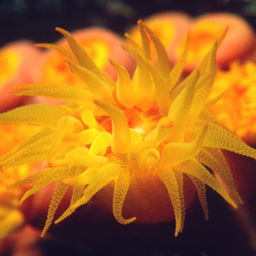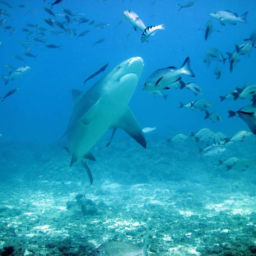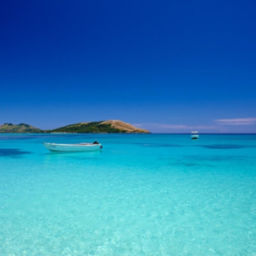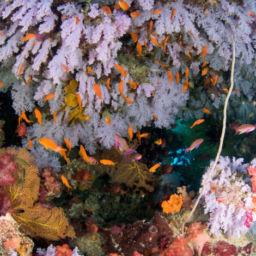Jean-Michel Cousteau shares his thoughts on the future of marine conservation in an exclusive interview at the famously family-friendly Jean-Michel Cousteau Resort in Fiji.
Oceanographic explorer, environmentalist, filmmaker and of course, oldest son to legendary undersea explorer Jacque Cousteau, Jean-Michel Cousteau has possibly been scuba diving longer than any other living soul. His father is credited with inventing the regulator (or Aqua-Lung) and Jean-Michel first dived with one when he was seven years old.
In 1999 he founded the Ocean Futures Society, a marine conservation and education organization formed initially in the first-ever attempt to return a captive orca to the wild: Keiko, of “Free Willy” fame.
Jean-Michel has made over 70 films, one of which, in 2006, influenced President George W. Bush to create one of the world’s largest marine protected areas in Hawaii, the Papahānaumokuākea Marine National Monument.
Having learned to dive at a young age, Jean-Michel has a passion for educating kids about the marine environment and in fact, his luxury eco-resort in Fiji is possibly more famous for being family-friendly than it is for diving. The resort’s Bula Club, aims to “expand children’s horizons and help them better understand and appreciate the world around them while learning how they can conserve and protect it.”
We chatted with Jean-Michel Cousteau at his Savusavu, Fiji Resort during a recent visit about the many threats to our marine environment, and its future guardians.
What challenges do we face to save our oceans and what can people do to help?
JMC: We’re the only species that has the capacity to solve problems and the privilege to decide not to disappear. We’re the only one. Nature doesn’t care. We can disappear and nature will keep going on.
First of all, everybody needs to understand that when you drink a glass of water, you’re drinking the ocean. There’s only one water system. If you go up in the Alps or wherever to go skiing, you’re skiing on the ocean. That water system is life for every plant and every animal, and we need to manage it like a business. We need to make sure it’s not polluted, and we need to stop using the ocean as a universal sewer.
What about plastic?
JMC: Plastic pollution is a big problem – but one that we can largely see. Chemicals and heavy metals are pollutants that we can’t see. Whether you live near the coastline or far inland, it makes no difference. Ultimately, anything littered is going to find its way into a stream and out to the ocean.
There are islands in the middle of the Pacific where thousands of albatross gather to mate and raise their young. Thousands of these babies are dying before they can fly, having ingested plastic fed to them unwittingly by their parents.
Scientists studying the dead chicks have found anywhere between eight and 12 pieces of plastic in their stomachs. Cigarette lighters, mascara, toothbrushes, toys, bottle tops … I counted 52 different countries as sources for this pollution in the middle of the Pacific.
And as plastic photo-degrades, it goes all the way down the food chain, affecting even plankton. Fish eat the plankton, and it goes all the way back up the food chain to our own dinner table. Of course, the seafood likely to affect us more are things like oysters and clams, the filters of the ocean, which we eat whole, unlike fish, which is gutted. We eat part of an oyster, mussel or clam. I don’t touch them anymore. I used to love them, but they are loaded with chemicals and heavy metals.
How do you educate people about these threats?
JMC: What’s very important is never to criticize, never point the finger. Try to reach the hearts. That’s how I convinced President W. Bush, who was heavily into oil.
And we were able to convince him thanks to Hawaii’s Governor Lintel, who invited him to a see our film, “Voyage to Kure.” Kure Atoll is the last island of the northwestern Hawaiian Island chain. It’s uninhabited but lies in the path of a major Pacific current, and thus is absolutely covered in plastic pollution. They showed the film at the White House and I was sitting next to Mrs. Bush who asked me questions non-stop. I’m totally convinced that night when they went to bed, she probably told him “George W., you better do something!”
So, he created the largest marine-protected area at the time. In 2016, President Obama multiplied what Bush had done by four. To me, that’s how we can make a difference. We’re getting there little by little.
But time is of the essence. That’s why I’m not giving up. At least not until I turn 107 and can celebrate 100 years of scuba diving. Until then, I’ll do everything I can to make sure people realize we’re all connected through a life support system — our oceans.
How are you getting the message out in Fiji?
JMC: In Savusavu at the resort, on the weekend I asked all the employees “Can you have all your kids come to the beach?” The kids came to the beach and we had bags and I said; “We have one hour to pick up all the plastic around the coastline.” The kids were running around and picked up 15 bags of plastic in one hour.
We filmed the whole thing and I’m going to make it 2- to 3-minute show. I’m going to have that shown on every Fiji Air airplane so visitors coming to Fiji can see that kids here are making sure we don’t destroy what we are falling in love with.
We’re impressed that Fiji has already gotten the message about plastic straws. Almost everywhere you go, drinks are served with metal straws.
JMC: But bottled water is a bigger concern here in Fiji. Fiji Water is making millions of dollars. You go all over California and you have it everywhere. But little by little we are making a difference. We got rid of bottled water here at the resort years ago. Guests receive stainless-steel reusable bottles, which can be filled at the bar for free and are replaced in the mini-bar every day.
So why did you choose Fiji for your resort?
JMC: The culture. The Fijian culture for me is a treasure. My opinion it’s the best destination anywhere on the planet.
And what’s your best ever dive?
JMC: The next one.







